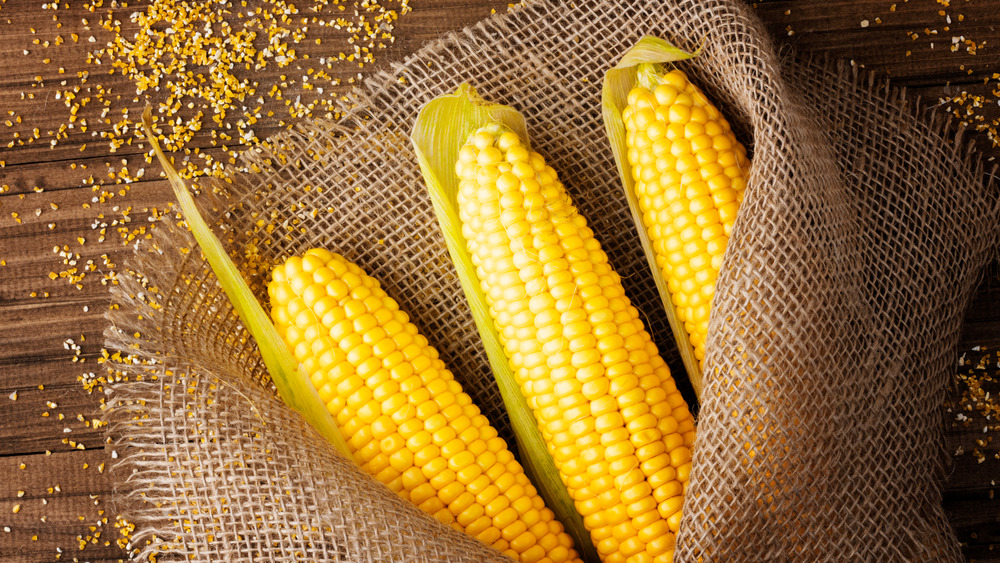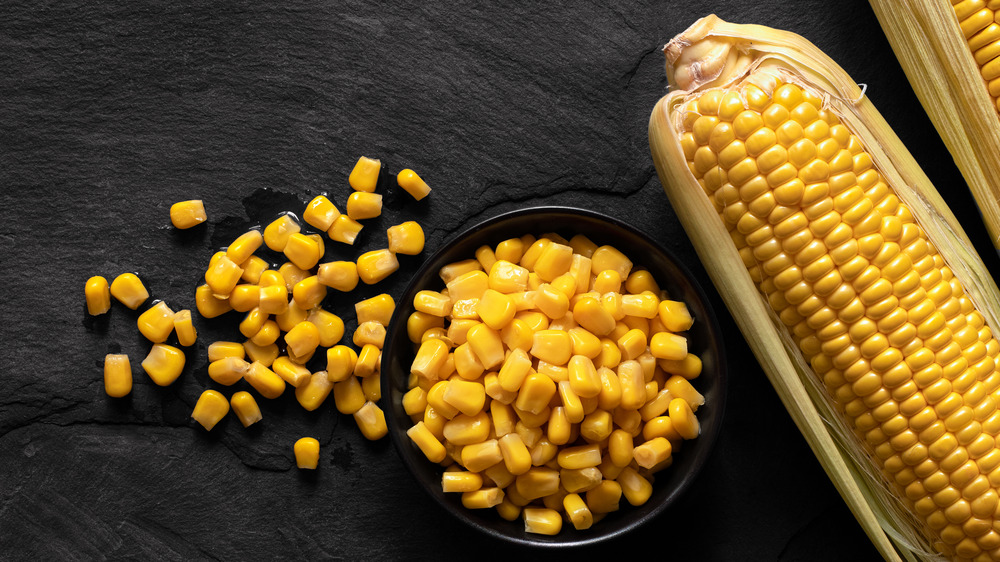This What Happens When You Eat Corn Every Day
It is safe to say that from a very young age, everyone has heard that they should always eat their vegetables. Time reports that U.S. health guidelines dictate that folks should eat between two to two and a half cups of vegetables per day (granted, this varies between age and gender). That is about three to five servings ranging from 375 to 400 grams each day. So next time you go to your local grocer, stock up on things like spinach, broccoli, watercress, eggplant, and corn on the cob. Why specifically corn on the cob?
Well, Healthline notes that corn on the cob is considered a vegetable, while corn kernels are seen as a grain. In addition, grains like popcorn can be seen as fruit (wild, right?). Regardless of how you like to consume corn, what actually happens to the body when you eat it every day? According to Eat This, Not That!, there are both good and bad aspects to eating corn consistently.
While eating corn can be beneficial to the body, eating too much can be harmful
Because of its superstar status, corn can be found in a lot of different foods. Healthline reports that you can find corn in tortillas, polenta, chips, oil, syrups, and so much more. It is even used as animal feed and for fuel (about 40 percent of corn that is cultivated in the U.S. is used for car fuel). But with so many functions, what occurs within the body when there is a steady intake of corn every day? Some benefits to eating corn, per Eat This, Not That!, are that the body can stay fuller for longer periods of time due to the fiber in it, and the vitamin B6 and vitamin B9 can give your overall energy a much-needed boost.
Healthline adds that overall eye health can also improve due to the amounts of lutein and zeaxanthin found within corn. However, with all the positives, there also comes some negatives. Eat This, Not That! cites that eating too much processed corn can raise the inflammation levels within the body. Highly processed corn is essentially stripped of its nutrients leaving you with just sugar and oil. Another downside to eating too much corn is that it can spike your overall blood sugar levels, which can be bad if you have a family history of diabetes. Sounds like moderation is the key to reaping its full benefits.

